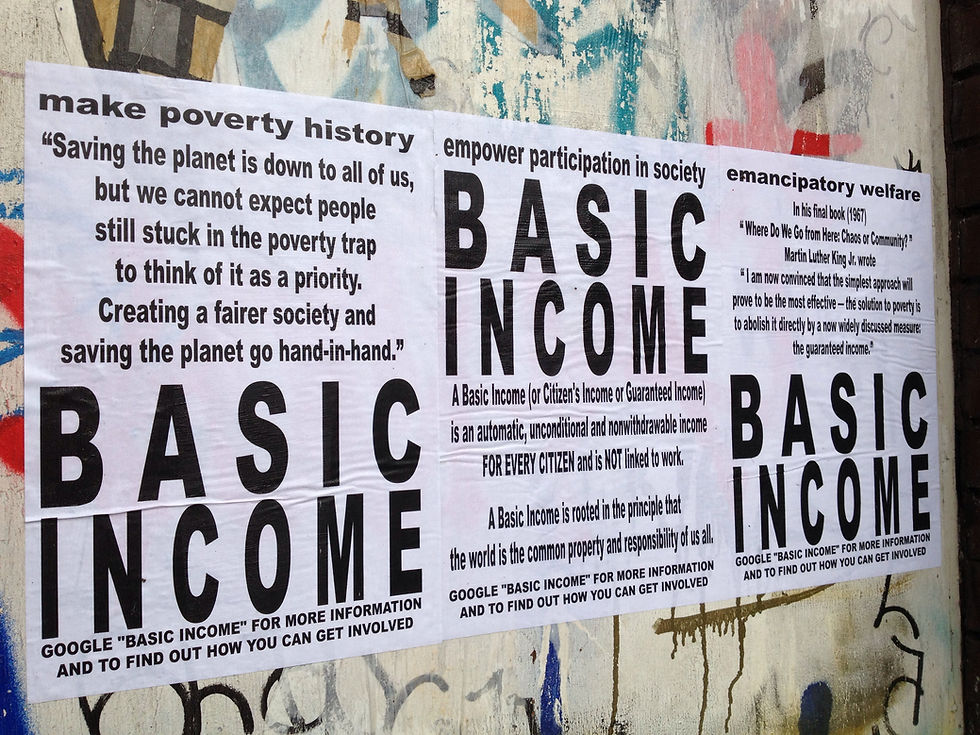Indigenous Protesters Block Brazil Highway after Elders Die of COVID-19
- Joshebel Ramlakhan
- Sep 3, 2020
- 3 min read
Updated: Dec 23, 2024
Joshebel Ramlakhan writes about the anger of Indigenous Brazilian tribes, after numerous coronavirus deaths amongst their communities. Many feel that they have been deprived of essential medical equipment, and have used various objects to block roads in protest. Many were also demonstrating against a potential railway line, as some fear that easier access would increase the risk of infection. The Indigenous fight for environmental protection has been an ongoing one.
Members of the Kayapó Indigenous tribe blocked a major highway in the center west part of Brazil on August 17th amid the deaths of Elders due to the coronavirus. The tribe blames the government for the death of four of their elders and the infection of dozens of their members in the southern Para state, near the city of Novo Progresso.

They were also said to be protesting the Ferrogrão railway construction: a project the government hopes to license next year. It is expected to cross the Amazon and connect the state of Mato Grosso to river ports for soy and corn distribution.
Tribe members dressed in bright colorful headdresses, and marked their bodies in black paint to signify their fighting spirit and grief. Some protesters were dressed with colorful beads and headbands of Brazilian soccer clubs. They used wooden logs and tires spread across the ground to block any traffic. The BR-163 highway is used for the transportation of crops like corn and soy.
Approximately 400 Kayapos Mekragnotire live in the region near Novo Progresso, spread out between 15 separate groups. There is scarce medical equipment available to treat their sick, very few doctors in the region, and no nearby intensive care units for COVID-19 patients.
A Kayapó leader told the Washington Post, “Healthcare here is precarious. There are not enough healthcare workers to handle the situation. We need urgent support in the middle of the pandemic… We need more supplies. If the government had done its job we wouldn’t be here in the middle of the pandemic.”
Protesters received some masks after blocking the road, but very few knew how to use them. Brazil’s health ministry says that approximately 20,000 indigenous people have been infected by the virus and at least 338 have been killed, although experts believe that number is underestimated. A count conducted by non-profit group APIB suggests that more than 25,000 indigenous people have been infected nationwide, and 678 killed.
The BR-163 Highway where they were protesting is adjacent to the Kayapos Mekragnotire reservation, and the new railway is expected to run parallel to the highway. The Kayapos say that the highway has brought more illness than benefits to them. Leaders say that outsiders spread the new coronavirus to their people, because there were no restrictions on entry to their land.
There has been an ongoing battle to protect their land from deforestation and environmental hazards. According to an article by BBC in 2019, the government of Brazil and it’s leader Jair Bolsonaro have ignored requests for better healthcare for Indigenous people and protection for Indigenous land before.
In 2019, there were protests against Bolsonaro’s ideas to make towns and cities responsible for medical services for indigenous people, rather than the national government. Community leaders feared that local authorities lacked the infrastructure available to provide for them. Bolsonaro endorses policies that support development over conservation, and has previously questioned the existence of indigenous protected reserves .
According to Doctors Without Borders the Brazilian government has rejected a proposal that would allow the charity to provide COVID-19 treatment to Indigenous communities in the southwestern state of Mato Grosso. In response to this decision, Doctors Without Borders has proposed to offer medical aid to seven communities in the Aquidana region - this move may potentially benefit approximately 6,000 people.
The coronavirus pandemic and lack of medical care has added to the growing concern surrounding the way of life for Indigenous people in Brazil. Without essential care and equipment, a second wave of coronavirus infection threatens to affect communities once again.

_edited.png)



Comments